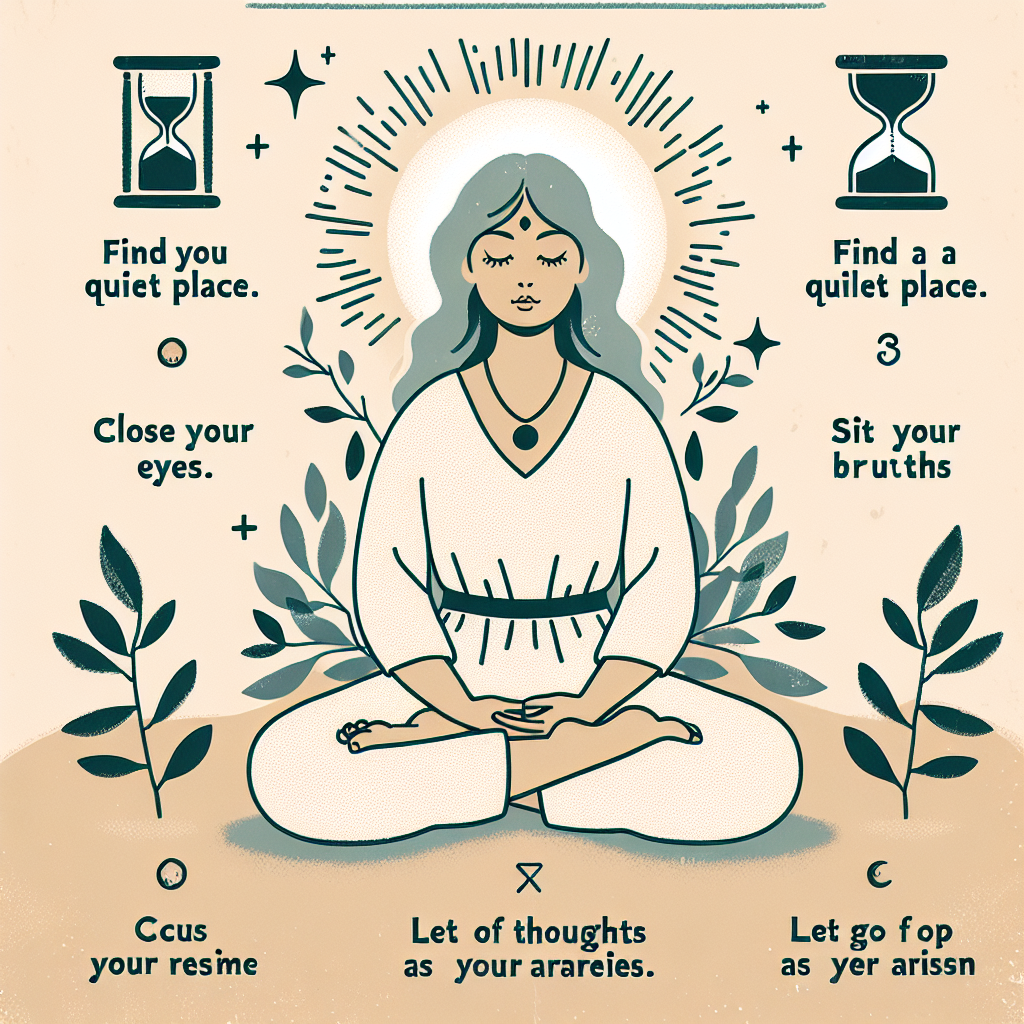
Meditation how to get started
Meditation: How to Get Started on Your Mindfulness Journey
Meditation has gained popularity in recent years as a powerful tool for managing stress, enhancing focus, and promoting overall well-being. Many people hear about its benefits and want to take the plunge but find themselves unsure of where to begin. If you’re eager to explore this calming practice, this guide offers clear advice on meditation, how to get started, and essential tips for navigating the early stages of your journey.
Understanding Meditation
Before diving into techniques and routines, it’s essential to understand what meditation is. Meditation is a practice that involves using techniques such as mindfulness, or focusing your mind on a particular object, thought, or activity to train attention and awareness, ultimately achieving a mentally clear and emotionally calm and stable state.
Here are some key points to consider:
- Meditation is Versatile: There are numerous forms of meditation, including mindfulness meditation, transcendental meditation, loving-kindness meditation, and many more.
- Benefits: Regular meditation practice can lead to reduced stress levels, increased concentration, heightened emotional resilience, and improved mental health.
- No Right or Wrong Way: The beauty of meditation is that you can tailor your practice to fit your personal needs and preferences.
Choosing the Right Environment
Your environment can significantly influence your meditation practice. Here are some tips for creating an ideal meditation space:
- Find a Quiet Space: Choose a location free from distractions, where you can sit comfortably.
- Make It Inviting: Decorate your space with calming colors, meaningful objects, or plants to create a relaxing atmosphere.
- Consider Lighting: Natural light can enhance your experience, but if that’s not possible, use soft lighting or candles to set the mood.
Meditation Techniques for Beginners
There are various ways to meditate, each offering unique benefits. Here are some popular techniques to consider:
- Breath Awareness: Focus on your breath, observing each inhale and exhale. If your mind wanders, gently bring your focus back to your breath.
- Body Scan: Lie down or sit comfortably. Close your eyes and progressively focus on each part of your body, observing any sensations or tensions.
- Guided Meditation: Use apps or online resources that offer guided sessions, perfect for beginners who may feel lost without direction.
Creating a Meditation Practice Schedule
Establishing a consistency in your routine is essential for gaining the full benefits of meditation. Here are steps to help create your meditation schedule:
- Choose a Time: Decide which time of day works best for you, whether it’s morning, lunch break, or evening.
- Start Small: Begin with just 5-10 minutes a day and gradually increase the duration as you feel more comfortable.
- Set Reminders: Use your phone or a physical calendar to remind yourself to meditate.
- Stay Flexible: Life can be unpredictable. Adjust your schedule as needed but try to remain consistent.
Tools and Resources to Enhance Your Practice
While meditation is fundamentally a mental practice, there are tools and resources that can help enrich your experience:
- Meditation Apps: Consider apps like Headspace, Calm, or Insight Timer for guided meditations and resources.
- Meditation Cushions: Invest in a comfortable cushion or chair to support your body during longer sessions.
- Books and Podcasts: Explore literature and podcasts dedicated to meditation, offering insights and techniques from experts.
Common Challenges Beginners Face
As with any new practice, you may encounter challenges while beginning your meditation journey. Here are some common hurdles:
- Restlessness: It’s common for your mind to wander. Don’t be hard on yourself; recognize when it happens and gently redirect your attention.
- Finding Time: Busy schedules can make it hard to fit in meditation. Try breaking sessions into shorter increments throughout the day.
- Frustration: You might feel frustrated at first if you don’t encounter immediate results. Remind yourself that meditation is a skill that improves with practice.
Developing a Supportive Community
Joining a meditation group or community can significantly enhance your practice. Here are ways to find support:
- Local Classes: Look for meditation classes in your area to connect with others.
- Online Forums: Engage with online communities, such as Reddit or other social platforms, where you can share experiences and resources.
- Retreats: Consider attending meditation retreats to deepen your practice and connect with experienced meditators.
Finding Personal Meaning and Motivation
One of the most vital aspects of meditation is understanding why you want to practice. Here are methods for staying motivated:
- Set Intentions: Define what you hope to gain from your practice, whether it’s enhanced focus, reduced stress, or emotional healing.
- Journal: Keep a meditation journal to document your journey, thoughts, and insights.
- Reflect: Regularly reflect on your progress and adjust your goals as necessary.
Conclusion
Embarking on your meditation journey can lead to transformative benefits for your mental and emotional well-being. By understanding the basics of meditation, finding a supportive environment, choosing techniques that resonate with you, and establishing a regular practice, you’ll set yourself up for success. Remember that meditation, how to get started, is a personal journey, and every experience is unique—embrace yours fully. With patience and persistence, you can cultivate a profound sense of peace and presence in your life.
"Meditation is the action of stopping, of realizing what is.” – Jon Kabat-Zinn
As you continue your exploration, remain open to the process, and let your practice evolve. The benefits are well worth the effort!
By Guest, Published on September 29th, 2024